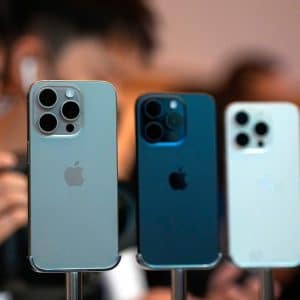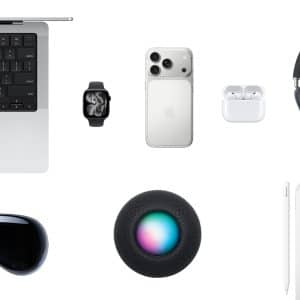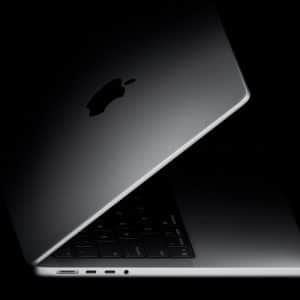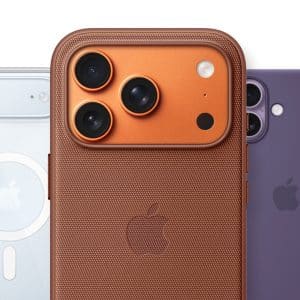What Does “Locked” Mean in Apple Devices?
When we talk about locked Apple hardware, it generally refers to devices that are restricted in some way by the original owner or the carrier. For instance, an iPhone locked to a specific carrier can’t be used with a different network unless it’s officially unlocked. Other forms of locked hardware could involve iCloud Activation Lock, Find My iPhone lock, or devices that are part of Apple’s Lost and Stolen registry. If you decide to avoid locked Apple hardware, you’re also avoiding these limitations.
Common Types of Locked Devices
Locked devices can be broadly categorized into several types:
- Carrier-Locked Devices: Tied to a specific mobile carrier.
- iCloud-Locked Devices: Restricted by an Apple ID or Find My iPhone activation.
- MDM-Locked Devices: Usually locked by companies through Mobile Device Management (MDM) software for internal use.
In any of these cases, opting to avoid locked Apple hardware saves you from a range of complications, from software limitations to potential privacy concerns.
The Drawbacks of Buying Locked Apple Hardware
Locked devices typically come with limited functionality. For example, a carrier-locked iPhone may not be compatible with other networks, drastically limiting its usability. Similarly, iCloud-locked devices can’t be reset or reactivated without the original owner’s Apple ID credentials, rendering them useless in many scenarios. This restriction is a prime reason to avoid locked Apple hardware.
While a locked device might appear cheaper upfront, the hidden costs quickly add up. Carrier-locked devices may involve additional fees for unlocking services, and some may even require you to sign up for extended service plans. In worst-case scenarios, you may have to purchase a new device altogether. By deciding to avoid locked Apple hardware, you’re effectively avoiding these potential hidden costs.
Locked devices are often sold on second-hand markets without proper authentication or history checks. Such devices could be stolen, blacklisted, or otherwise compromised. Using a stolen or blacklisted device could expose your personal data and also put you at risk of legal repercussions. The decision to avoid locked Apple hardware is, therefore, not just a financial one but also a measure to protect your security and privacy.
Benefits of Purchasing Unlocked Apple Devices
Unlocked Apple devices provide flexibility. Whether you’re looking to switch carriers, travel abroad, or sell your device, an unlocked iPhone or iPad makes it easier to do so. This flexibility extends to using the latest features and software updates without any hindrances. Thus, choosing to avoid locked Apple hardware makes practical sense for those who value control over their devices.
Unlocked devices generally retain higher resale values compared to their locked counterparts. Buyers prefer unlocked devices because they know they won’t face limitations or additional unlocking costs. Therefore, opting to avoid locked Apple hardware can also mean a better return on investment when it’s time to upgrade to the latest model.
Purchasing an unlocked device from an authorized Apple retailer or directly from Apple ensures peace of mind. You are guaranteed a device free from prior locks, complications, or hidden histories. Choosing to avoid locked Apple hardware ensures you’re getting a product that meets Apple’s quality standards without the baggage.
How to Avoid Locked Apple Hardware
The most foolproof way to avoid locked Apple hardware is to buy directly from Apple or its authorized resellers. These channels offer devices that are guaranteed to be unlocked, new, and come with a valid warranty. Moreover, purchasing through official channels allows you to take advantage of Apple’s customer support and warranty services, further enhancing the value of your purchase.
Understand IMEI and Activation Locks
Before buying a second-hand Apple device, it’s crucial to check the IMEI or serial number to ensure it’s not reported as lost, stolen, or carrier-locked. Websites like Apple’s Activation Lock Status can provide this information. If you must buy a second-hand device, these checks are essential steps to avoid locked Apple hardware.
Use Apple’s Certified Refurbished Program
Apple offers a Certified Refurbished program where devices are rigorously tested, certified, and backed by a warranty. These refurbished devices are unlocked, fully functional, and come with Apple’s warranty, making them a great choice for budget-conscious buyers looking to avoid locked Apple hardware.
Alternatives to Buying Locked Hardware
Consider Payment Plans
If the cost of a new unlocked Apple device seems prohibitive, consider Apple’s installment plans. They offer flexibility without the risk of acquiring a locked device. This can be a sensible alternative for those who want to avoid locked Apple hardware but are concerned about upfront costs.
Explore Trade-In Options
Apple’s trade-in program allows you to offset the cost of a new device by trading in your old one. This program ensures that you’re getting a device directly from Apple, free from any locks, and also provides an eco-friendly way to dispose of your old hardware. Utilizing these options allows you to avoid locked Apple hardware while still managing costs.
Why Apple Locking Policies Exist
Apple’s locking policies, including Activation Lock and iCloud Lock, are designed to deter theft and unauthorized use. While these measures protect the original owners, they also mean that buying second-hand Apple hardware can be risky unless you ensure the device is unlocked. This further supports the need to avoid locked Apple hardware.
Carrier-locked devices exist due to exclusivity agreements between Apple and telecom operators. These deals often come with terms that restrict a device to a specific network for a certain period. As a result, the smartest choice for those who want freedom and flexibility is to avoid locked Apple hardware.
For those who value control, security, and flexibility, the best decision is to avoid locked Apple hardware. Whether it’s an iPhone tied to a specific carrier, an iPad locked to an Apple ID, or any other form of restricted hardware, the risks often outweigh the benefits. By purchasing directly from Apple or its authorized resellers, understanding the limitations of locked devices, and exploring alternatives like Apple’s Certified Refurbished program, you can ensure a safer, more reliable, and ultimately more rewarding Apple experience.








